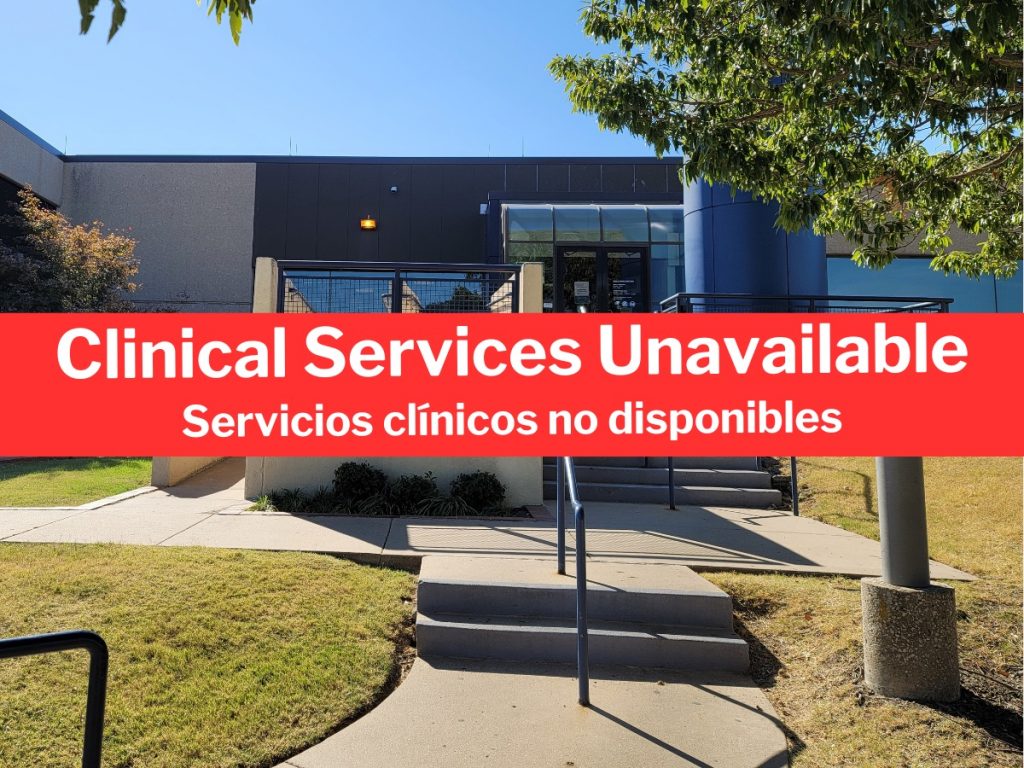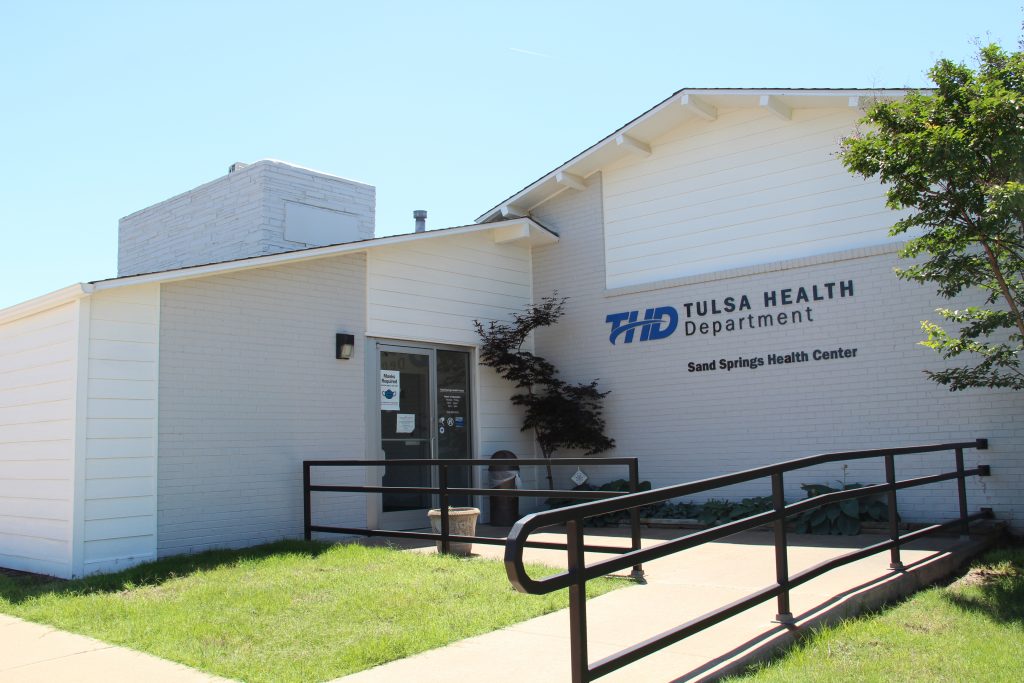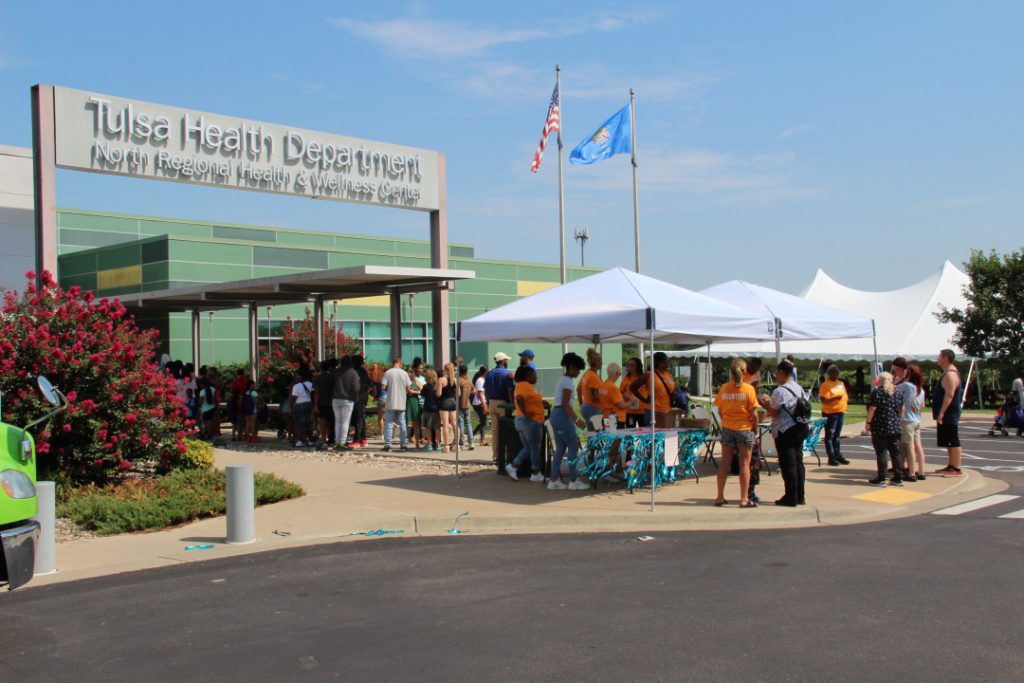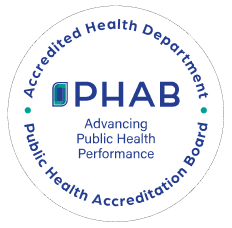Getting vaccinated against the flu is the single best way to prevent the flu. The flu vaccine can keep you from getting the flu, make the illness less severe if you do get it, and keep you from spreading the virus to family and other people.
It is recommended that all individuals over the age of six months be vaccinated against the flu every year. Persons at high risk of serious complications from flu are especially advised to get the flu vaccine, including older people, pregnant women and those with asthma, diabetes, or other chronic conditions. Parents and family members of babies less than 6 months of age and people who live with or care for anyone at high risk for complications from the flu, including health care workers, should also get the vaccine.
Make an appointment online or call 918-582-9355. The flu vaccines will be offered while supplies last to anyone over the age of six months by appointment only. Click below to schedule an appointment at the following Tulsa Health Department locations:




5635 N. Martin Luther King Jr. Blvd, Tulsa, OK 74126

The Tulsa Health Department has quadrivalent vaccine available while supplies last for adults and children over six months of age. The Tulsa Health Department will have limited supplies of the high-dose vaccine for individuals age 65 and older.
The 2023-2024 seasonal flu vaccination requires only one shot for most individuals. Children under age nine who have not received two flu immunizations before July 1, 2023 will need a second dose at least 4 weeks after receiving the first dose.
The most important thing is to get a flu vaccine every year. Talk to your doctor or nurse about the best options for you and your loved ones.
You can save time by downloading and completing a flu vaccination form and bringing it with you when you visit the clinic:
Children through age 18 years are eligible to receive vaccines at no charge through the Vaccines for Children (VFC) program if any of the following apply: they are Medicaid eligible, uninsured, Native American Indian, Native Alaskan, or their insurance policy does not cover vaccines.
THD currently accepts Cigna, Community Care, Blue Cross Blue Shield, Health Choice, Medicare and SoonerCare Medicaid for immunizations. Coverage can vary among different insurance plans. Please bring your insurance card and photo ID with you. It is always advisable to check with your insurance provider for coverage specifics before receiving immunizations, as you may be responsible for charges that are not covered by your insurance policy.
Regular injectable flu vaccine will cost $25. High-dose flu vaccine will cost $63. The cost for regular flu vaccine may be waived for uninsured adults who qualify.
During flu season, the Oklahoma State Department of Health provides weekly updates about their flu surveillance system on the OK FluView. THD is also offering a Tulsa County specific report based on OSDH’s weekly report found below.
The purpose of the seasonal influenza data page is to provide Tulsa County specific data on influenza-associated hospitalizations and deaths as well as provide information about seasonal influenza and how to prevent it.
Influenza (flu) and COVID-19 are both contagious respiratory illnesses, but they are caused by different viruses. COVID-19 is caused by infection with a coronavirus first identified in 2019, and flu is caused by infection with influenza viruses. Because some of the symptoms of flu, COVID-19, and other respiratory illnesses are similar, the difference between them cannot be made based on symptoms alone. Testing is needed to tell what the illness is and to confirm a diagnosis. People can be infected with both flu and the virus that causes COVID-19 at the same time and have symptoms of both influenza and COVID-19. Flu and COVID-19 share many characteristics, but there are some key differences between the two. While more is learned every day, there is still a lot that is unknown about COVID-19 and the virus that causes it.
Can I get the flu shot and the COVID-19 vaccine at the same time?
Yes, flu vaccines and COVID-19 vaccines can be given at the same time.
Can I have flu and COVID-19 at the same time?
Yes. It is possible have flu, as well as other respiratory illnesses, and COVID-19 at the same time. Health experts are still studying how common this can be. Some of the symptoms of flu and COVID-19 are similar, making it hard to tell the difference between them based on symptoms alone. Testing can help determine if you are sick with flu or COVID-19.
Is COVID-19 more dangerous than flu?
Flu and COVID-19 can both result in serious illness, including illness resulting in hospitalization or death. Compared to flu, COVID-19 can cause more serious illnesses in some people. COVID-19 can also take longer before people show symptoms and people can be contagious for longer.
Will a flu vaccine protect me against COVID-19?
Getting a flu vaccine will not protect against COVID-19, however flu vaccination has many other important benefits. Flu vaccines have been shown to reduce the risk of flu illness, hospitalization and death. Getting a flu vaccine this fall will be more important than ever, not only to reduce your risk from flu but also to help conserve potentially scarce health care resources.
When should I get vaccinated?
September and October are generally good times to be vaccinated. Ideally, everyone should be vaccinated by the end of October. Adults, especially those older than 65, should not get vaccinated early (in July or August) because protection in this group may decrease over time. Children can get vaccinated as soon as vaccine becomes available—even if this is in July or August. Some children need two doses. For those children it is recommended to get the first dose as soon as vaccine is available, because the second needs to be given at least 4 weeks after the first. Early vaccination can also be considered for people who are in the third trimester of pregnancy, because this can help protect their infants during the first months of life (when they are too young to be vaccinated).
While flu activity may be low in your community now, it could begin increasing at any time. Remember, after you are vaccinated, your body takes about two weeks to develop antibodies that protect against flu.
Will new flu viruses circulate this season?
Flu viruses are constantly changing so it’s not unusual for new flu viruses to appear each year. More information about how flu viruses change is available.
Do I need a flu vaccine if I wear a mask and social distance?
Yes. Wearing a mask and physical distancing can help protect you and others from respiratory viruses, like flu and the virus that causes COVID-19. However, the best way to reduce your risk of flu illness and its potentially serious complications is for everyone 6 months and older to get a flu vaccine each year. By getting a flu vaccine, you may also be protecting people around you who are more vulnerable to serious flu complications.
We have 10 locations across Tulsa County that offer a variety of services to help you and your family stay healthy.







